‘’Quality education, in particular business education, will be the driving force behind Ukraine’s recovery. No one will ever humiliate an economically prosperous country with people who prove this status – not in word, but in action and show that they are ready to unite in times of crisis and help those in need,’ says Yaryna Boychuk, head of UCU Business School.
In early February, UCU Business School celebrated its 17th anniversary. Over this time, it has not only grown several times but also become one of the best in Ukraine. In this interview, Yaryna Boychuk talks about the phenomenon of the Business School, its achievements over the years, its cooperation with the Ukrainian Catholic University, and why high-quality business education will be the most important driver for Ukraine’s recovery.
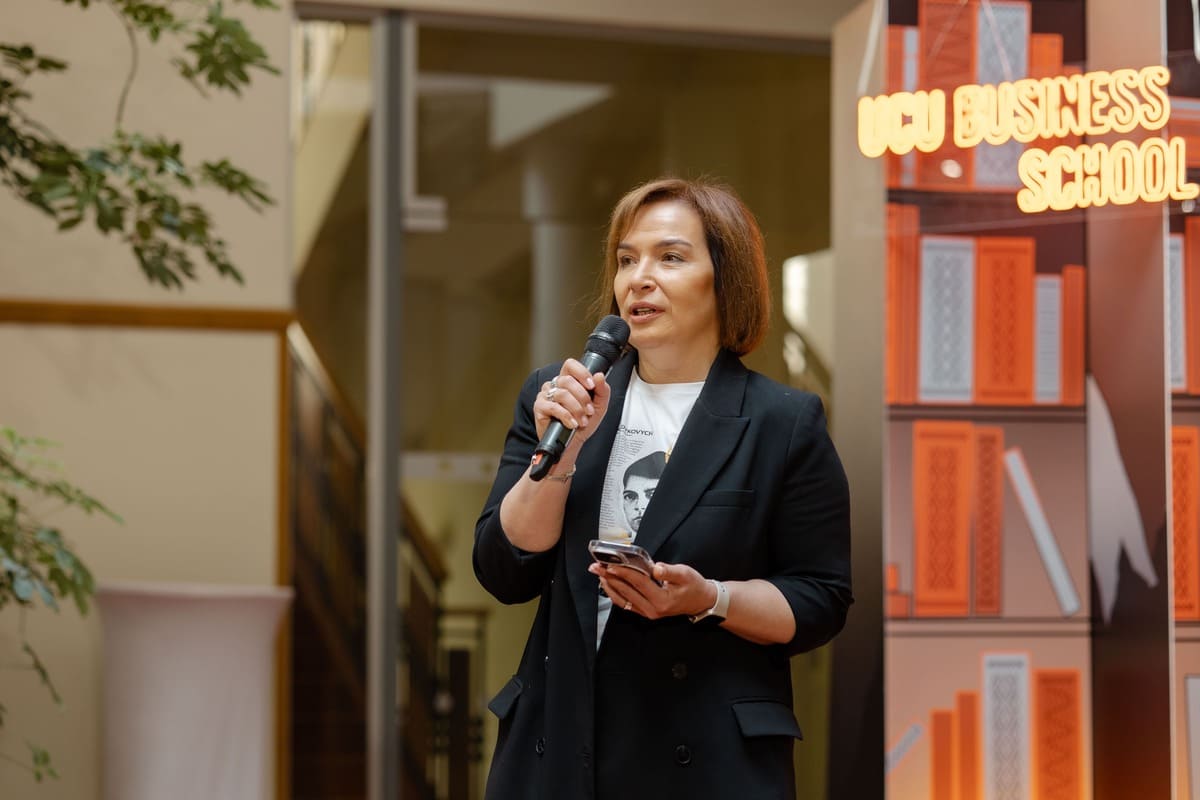 Flexibility for change is embedded in our DNA
Flexibility for change is embedded in our DNA
– Yaryna, UCU Business School, is 17 years old. Please describe the main stages of the institution’s formation.
– In 2008, a global financial crisis inevitably affected everyone. Businesses cut their budgets, primarily for education and marketing. During this difficult period, the Lviv Business School of UCU (initially called LvBS, rebranded in 2021 – ed.) was founded.
We started by beginning to recover from the crisis, and, accordingly, we worked together with Ukrainian businesses. Thus, flexibility to change was embedded in the DNA of UCU Business School.
When I joined the Business School, in its fourth year of operation, all the courses related to business development were about how to act in times of uncertainty. And this uncertainty only grew from year to year.
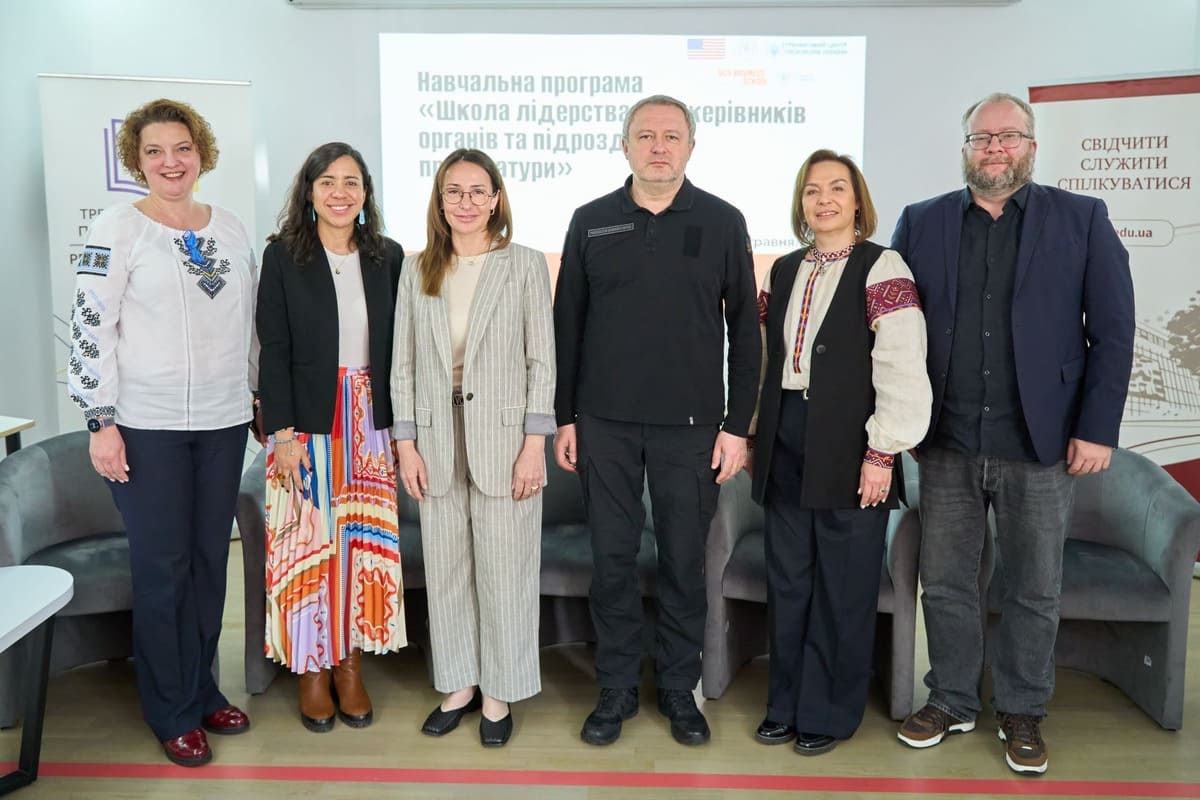 In 2013, the Revolution of Dignity began, and our faculty and students actively participated. However, the school did not halt its activities under those circumstances; instead, it continued to develop. During this period, we grew nationally, and business representatives nationwide became our students.
In 2013, the Revolution of Dignity began, and our faculty and students actively participated. However, the school did not halt its activities under those circumstances; instead, it continued to develop. During this period, we grew nationally, and business representatives nationwide became our students.
If we talk about the stages of the Business School’s development, they are closely tied to what was happening in Ukraine and the world. All our programs were born and developed in close cooperation with businesses, in response to market demand.
We developed programs not only for owners and experienced managers. The Innovation and Entrepreneurship program emerged in response to the younger generation’s desire to launch more creative projects and startups. The MSc in Technology Management program was created in response to a request and in collaboration with the IT cluster, with the understanding that Ukraine needs specialists who not only understand technology but also all aspects of the business itself. Therefore, technology management became a response to the need for IT business managers.
In addition, the Business School gave rise to the Entrepreneurship Center and the UCU Leadership Center. Today, they exist as separate institutions that are closely connected to us.
– In your opinion, why has the Business School managed to grow throughout the years, expand its product range, and navigate through the crises of COVID and the war?
– This is undoubtedly due, first of all, to the Ukrainian Catholic University. We have been, are, and will be part of a strong and stable institution in its values! This is a great support and guide. Therefore, the UCU brand, the strength of UCU, and the people of UCU are the basis of our development and sustainability.
The second reason is the educational community. Our graduates don’t leave us. They always support not only the Business School but also each other. In times of challenges, everyone responds to the call for support. This was especially helpful during the pandemic.
And at the beginning of the invasion, we already knew how to operate. Everyone immediately mobilized. Some of the work moved online. Thanks to the community, we could solve problems much faster, more dynamically, and more efficiently than we would have individually. We quickly found the right people who could support and help with a particular matter.
We should also not forget about our faculty. They are theorists and practitioners: while teaching at the Business School, they implement their own projects and businesses. Therefore, they are also part of the community and grow with the school.
An essential factor in the development of the institution is the team. The story of our 17 years of growth is closely tied to it. There were nine of us when I joined the team, and now there are almost 50. This backbone works every day to fulfill the mission of the Business School – we nurture a Ukrainian community of ethical leaders who take on global challenges, create partnerships based on a “positive sum” approach, and change the business paradigm of the world.
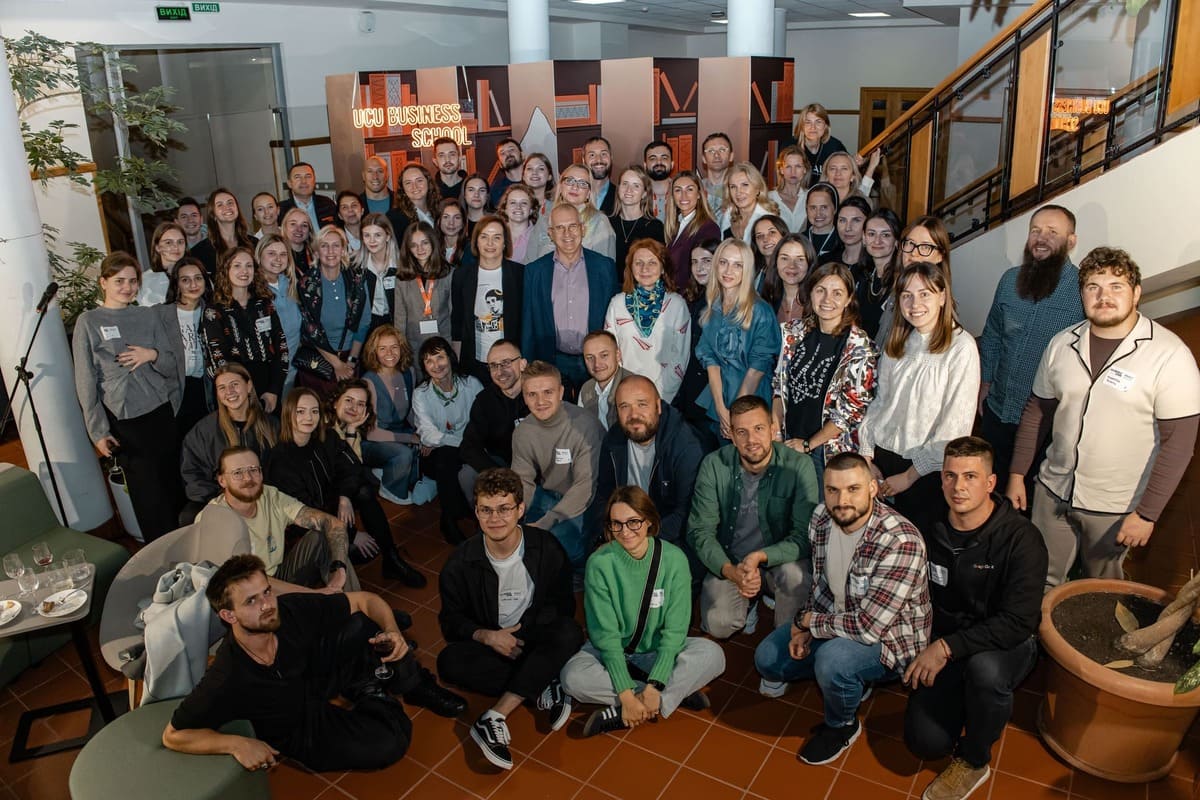 The fourth pillar is our founders, the Supervisory and Advisory Boards. They care about the development of the Business School and believe in us. The Supervisory Board is always with us: in times of crisis, we have someone to turn to, and in times of success, we have someone to rejoice with. They understand continuity: where it all started, where we are now, and where we are going.
The fourth pillar is our founders, the Supervisory and Advisory Boards. They care about the development of the Business School and believe in us. The Supervisory Board is always with us: in times of crisis, we have someone to turn to, and in times of success, we have someone to rejoice with. They understand continuity: where it all started, where we are now, and where we are going.
Ukrainian business must take its rightful place among the global one.
– What is the main mission of the UCU Business School?
– The main mission of the Business School is to do everything possible to ensure that Ukraine takes an essential place on the global business map. It is much easier to be heard with a self-sufficient and strong economy. At UCU Business School, we create a platform and environment where one can learn, test the knowledge and skills gained, find support, and go beyond Ukraine. After all, to be heard, you need to find channels where you will be powerful, where people will pay attention to you, and where you will be taken into account.
Therefore, we aim to ensure that Ukrainian businesses take their rightful place on the global map. We also care about the country’s economic resilience. We understand that this is all important, but not at any cost and not solely to make profits.
We want businesses to think systematically, understand their impact and responsibility, be ethical, and find models that allow them to grow, be successful and wealthy, and pay employees a fair salary.
It will be an excellent advantage for Ukraine when we raise a large cohort of entrepreneurs, owners, founders, and managers at various levels of management who will demonstrate responsible leadership.
– What is the UCU Business School’s place in the field of business education in Ukraine?
– There are only five business schools in Ukraine. And UCU Business School holds a worthy place, even though we are the only one not located in the capital. Yet people come to Lviv because we offer the most globally integrated business education.
Last year, we had 35 foreign lecturers, 15 of whom taught in person. This is a very important indicator. We see this as an opportunity for our business to enter global markets. Additionally, we communicate about Ukraine with foreign lecturers who are influential in their fields. They, in turn, can tell about us at international conferences at their universities. In this way, we convey the truth about what is happening in our country and how resilient Ukrainian business is.
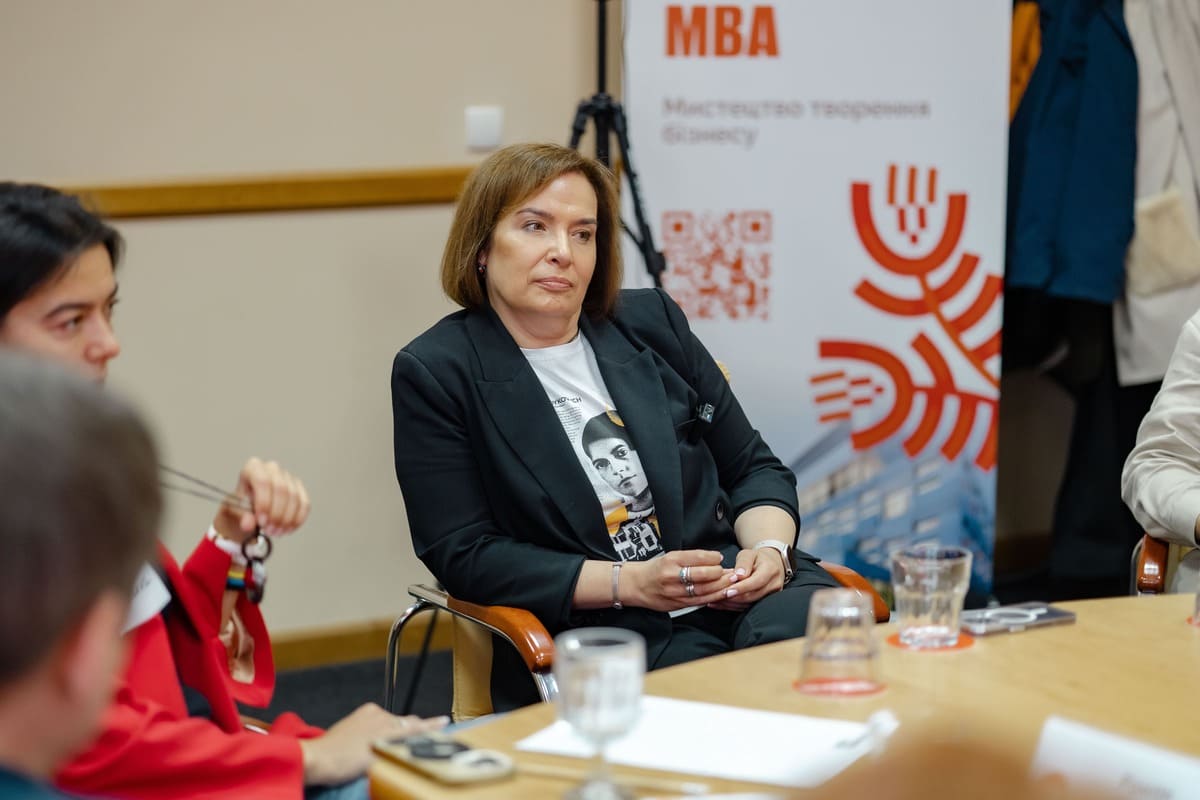 – How has the business education market evolved over the past 17 years? Do entrepreneurs understand how vital business education is for their development?
– How has the business education market evolved over the past 17 years? Do entrepreneurs understand how vital business education is for their development?
– The very fact that there are so few business schools in Ukraine means that there is still little demand for business education.
Our business began to form in the 1990s. After the collapse of the Soviet Union, those with entrepreneurial flair entered this field. In this way, people survived, and no one thought learning was necessary.
Even now, not many entrepreneurs understand why they need business education. That is why I believe that all Ukrainian business schools should work together to promote business education as such, because the success of our business and economy largely depends on it.
I want more people to think about their own education and the training of their teams and be willing to invest in it. During the war, we noticed businesses did not cut funding for training their teams. And I think this is a very important trend and an opportunity for maturity for our economy as a whole.
Studying at a business school is a decision that managers make strategically. After such an education, you can no longer live and work as before. You have to change: not just tighten the screws in your business, but be ready to transform it comprehensively. I hope that more and more people will be able to take this step.
Unsuccessful people and unsuccessful businesses do not seek education.
– What do your students usually come for? What kind of educational services do they need?
– Usually, they come for tools. ‘Give us some specific tools that will help us improve the efficiency of our business,’ they ask. Sometimes, they also say: ‘I already have experience, and I would like to rethink it. I want to change.’
I always say that unsuccessful businesses or people do not seek education. They don’t have the resources for it – not just financial, but also time. They cannot step away from their business and look at it from the outside to reflect. They are busy with daily work and “putting out fires.”
Instead, people come who think: ‘I came to business school because I was growing up and now I am successful. But I feel I have already hit the ceiling and don’t know where to go. Something is restricting me. I’m ready to go beyond that: sit in a business school and analyze my business with colleagues in a different environment.
During the studies, we see a transformation in students’ needs. They come with a request to implement a specific project. Still, usually, after a third of the course, they say, “I’ve implemented it,” or “I’m no longer interested in it. I’m already thinking further, looking at the bigger picture,” or “I’ve realized I need to strengthen my team because I want to speak the same language with them.” Therefore, entrepreneurs often find themselves with much broader requests and new expectations during their studies.
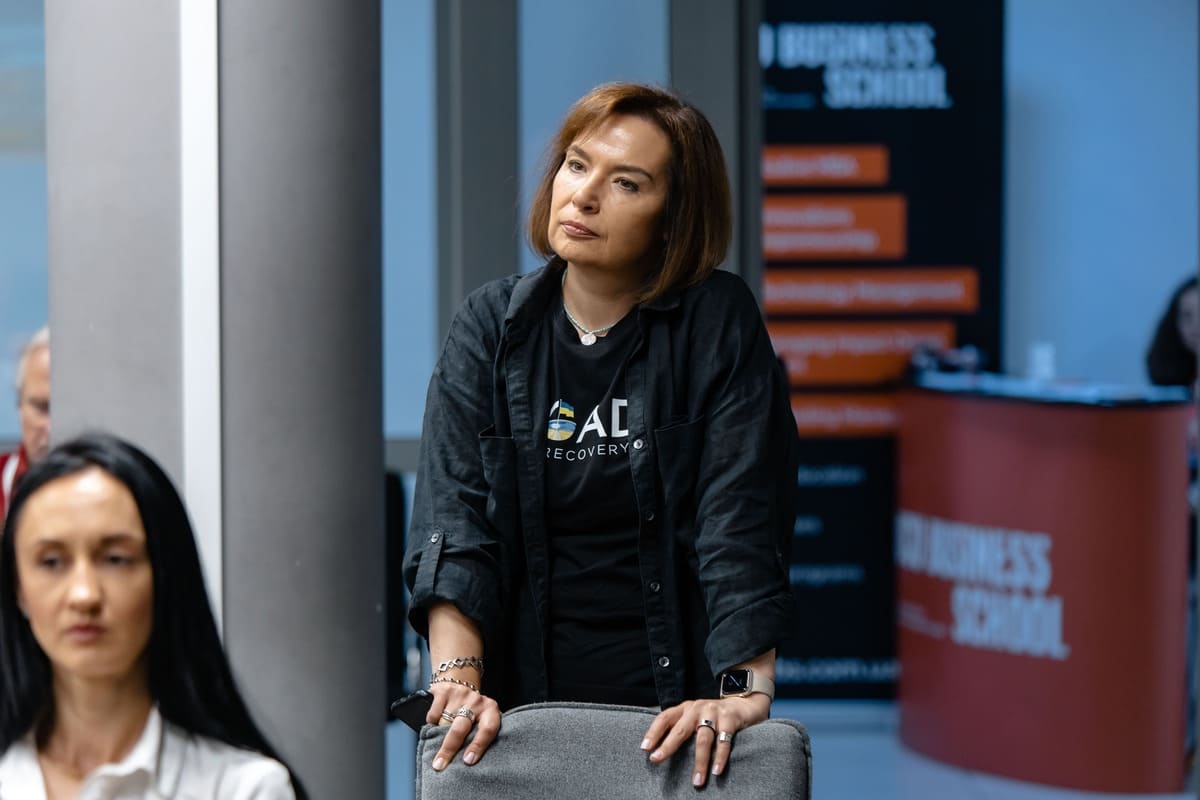 – How did the general portrait of a Business School student change during the full-scale invasion?
– How did the general portrait of a Business School student change during the full-scale invasion?
– Every year, we have a completely unique group. In 2019, the business saw incredible growth and prosperity. Everyone was happy with themselves and their business and expected even more growth. No one could have imagined that there would be a pandemic in early 2020. At that time, the group consisted of ambitious people who did not want to accept the cataclysmic events that would keep everyone at home and stop growth. Many business models collapsed, but others emerged. It was a very big challenge.
And the people who came to us during the pandemic were ready to learn in any format. We seized every opportunity to work in person because, suddenly, in-person learning became a value, not just something ordinary.
When the full-scale invasion began, we didn’t know how to communicate, and we said that even now, learning is essential. However, there was an understanding that UCU Business School would be a good platform to test new ideas, implement them, and find partners and like-minded people even in what seemed to be the most challenging times. What a surprise it was to us that one of the largest groups was formed during the war! However, while in better times, people in groups were more competitive, now those who come are ready to cooperate, play win-win, and find strength in collaborations. Ukrainian businesses are currently undergoing a significant transformation.
Lifelong learning
– In what directions is UCU Business School developing now, during the war?
UCU has developed the 2030 Strategy, and we are contributing to its implementation. Our strategy fully responds to the challenges and opportunities of the time. In this context, it is not only about foreign lecturers in our programs. Now, our students can study abroad with the Business School’s partners and then return to implement their projects in Ukraine and globally. During joint educational programs, entrepreneurs build connections with foreign colleagues learning in the same classroom. I believe this will help Ukrainian businesses expand beyond the country.
We are also expanding our collaboration with foreign partners in scientific research. We understand that we need to know more about ourselves. War is terrible. However, it also creates unique conditions for developing the resilience of businesses and studying the phenomenon of Ukrainian tenacity.
Before that, we were engaged in research within the country. Now, we have to generate results and go abroad with them to talk about Ukraine internationally.
There is another challenge related to the trauma of war. Veterans are returning to civilian life. How businesses adapt to this and how they will help former military personnel integrate into society is crucial.
We also plan to delve deeper into business ethics. Studying it helps us better understand ourselves, business justice, the principle of cooperation for a common result, and our responsibility to society.
– At the beginning of the conversation, you mentioned that the Business School is part of UCU. How does this interaction work?
– Everything happens in stages. And this means that we are increasingly finding ourselves within the system of the Ukrainian Catholic University in the best sense. Our diploma is a UCU diploma. And our students often, first and foremost, mention that they study at UCU. For them, this is important.
We are also closely connected by our faculty and the research we conduct within UCU, because university academicism allows us to improve it.
In addition, UCU has developed a very good policy on employee welfare, which is fully used by the Business School team. Our graduate and now lecturer Uliana Kulchytska and her team worked on it.
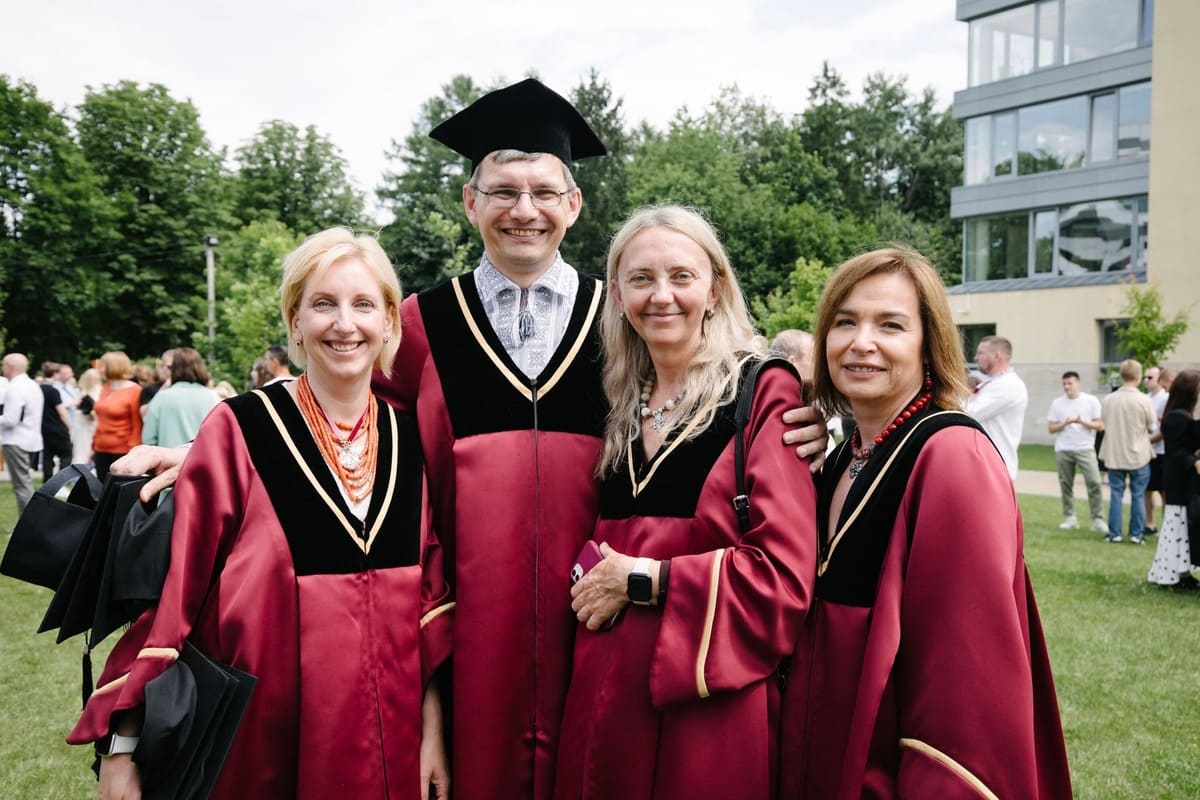 As a Catholic university, UCU has a very good network of partnerships and a reputation in the international educational arena. This strength of the institution extends to the Business School. This makes it easier for us to enter global platforms and build partnerships with the best faculty and business schools.
As a Catholic university, UCU has a very good network of partnerships and a reputation in the international educational arena. This strength of the institution extends to the Business School. This makes it easier for us to enter global platforms and build partnerships with the best faculty and business schools.
– UCU Business School actively promotes the lifelong learning approach. Why is it essential in the modern world, especially business?
– I believe that education that does not change a person and their life is terrible. We say that if you come to the program and leave with even more questions, then the education is effective.
I don’t mean you have to learn for the sake of learning. Lifelong learning is when you study, practice, draw conclusions, reflect, find what you need next, look for opportunities to acquire relevant knowledge, go back to study. The cycle repeats because studying without applying knowledge in practice is procrastination.
At UCU Business School, people learn something new about learning. At least a third of our students return to a new program within three years. We want this number to grow.
We must constantly change and improve our programs, considering the context in which we live, new trends, research, and faculty. We are not academically stagnant.
I want to add that lifelong learning is not just about reading books and understanding something, but also about creating knowledge. That’s why many of our alumni return to us as experts. They bring their experience here and share it with the audience. This is very important for UCU students as well. Our alumni often serve as mentors, advisors, or lecturers for them.
Ukraine offers a unique experience in business management.
– In the UCU Business School, there are many foreign lecturers. What do you think attracts them to teach in Ukraine despite the current dangers?
– Many foreigners come to Ukraine because they are interested in what is happening here.
Some of our lecturers are willing to teach pro bono – for a small fee that covers only travel and accommodation. Why is this? Many of them are attracted to our students by their desire to learn and change their ability to debate, think, and question statements in a healthy discussion.
In Ukraine, one can gain a unique experience. Our country is not deeply integrated into Europe, as we are not part of the EU or other global business and economic organizations. This means we have different conditions. Every experienced lecturer is ready to learn and discover new things here. No wonder they say that professors learn by teaching. This is the highest level of education. After working at UCU Business School, some professors conducted research based on what they heard in the classroom while communicating with Ukrainian managers. We have conditions that cannot be invented or artificially created in a laboratory because businesses operate in war, contrary to all rules and theories.
The situation was similar during the pandemic. In more developed countries, all businesses closed and were paid for not working. In our country, we opened the back door to survive. It is the same with the war. No one sat down, but on the contrary, they started to change their businesses. Entrepreneurs manage to pay taxes, help the army, and support their employees at the front. And some of them even earn more than they did in peacetime, and legally because they find niches or models that were not used in peacetime.
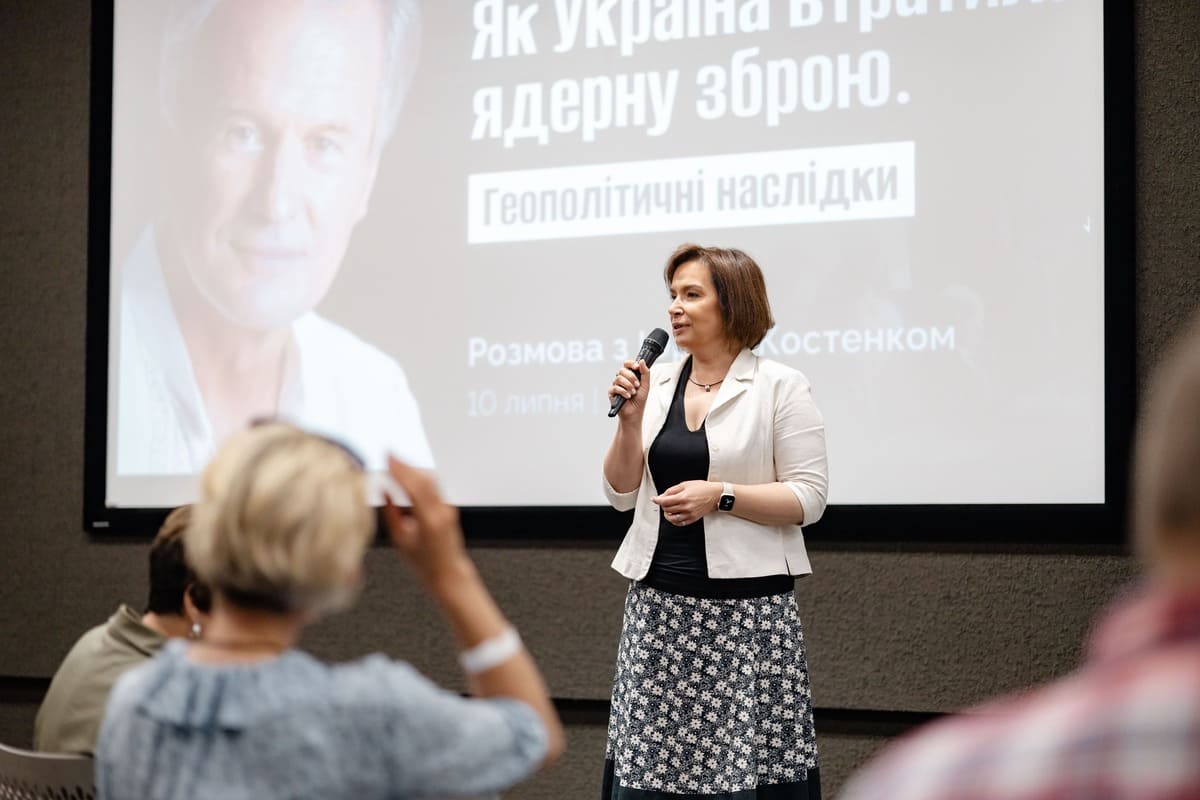 – How do you manage to establish international partnerships with lecturers?
– How do you manage to establish international partnerships with lecturers?
– Our cooperation is about relationships. It is about constant communication and forming an opinion about lecturers and societal learning. In return, lecturers offer us unique solutions to certain issues.
Besides, people often look for us and offer us their courses or programs. It helps that Ukraine is in the public eye, unfortunately, because of the war, but we cannot but use this opportunity.
– Can business education become a driving force for Ukraine’s recovery?
– Yes! No one will ever humiliate an economically prosperous country with people who prove this status not in word but action and show that they are ready to unite in crisis and help those in need.
All this will take time. Business education will be a significant driving force for Ukraine’s reconstruction and economic prosperity.
Responsible business education will also be the foundational value for building businesses in our country, not just for profit but for the future. The goal is to create development strategies for 10-20 years and 100 years. I believe this can indeed be achieved by continually developing business education in business schools.
Interviewed by Nadiya Ilchuk
Photo: UCU Business School




















